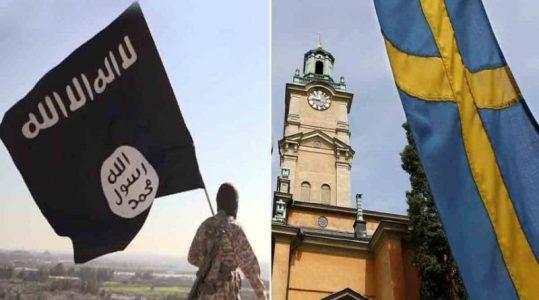
Islamic extremists continue to openly recruit members in Sweden
Swedish terrorism expert Magnus Ranstorp has claimed that Islamic extremists continue to recruit and spread their ideology in Sweden despite the defeat of the Islamic State.
Ranstorp says he blames inaction from the Swedish government, which allowed as many as 300 Swedes to travel to the Middle East to join the terror group, with at least 150 of them already having returned to Sweden.
“There has been a chain reaction of tardiness on all different levels and different fronts. It’s basically been a disaster. Especially in the area of prevention, but also in terms of legislation,” Ranstrop told Swedish broadcaster SVT.
Since 2012, Ranstorp has warned the Swedish government of the dangers of radical Islamic extremism but says little has been done to stop Swedes from joining groups like the Islamic State.
According to the terror expert, the threat in Sweden continues to grow and said that Muslim parents have reached out to him to stop their children from travelling to terror hotspots like Syria.
“They definitely have reason to be worried because radicalisation and recruitment are ongoing today. I have gone out to these areas for the last ten years and seen how it gets worse and worse,” Ranstorp said.
SVT claims that in the last decade, the number of violent Islamic extremists in Sweden has increased from 200 to around 2,000. The broadcaster also says that when it comes to people leaving European countries to join ISIS in the Middle East, Sweden sends the third-highest number of foreign fighters per capita.
In 2019, Breitbart London reported on Islamic State returnees allegedly recruiting in areas of Sweden, particularly the multicultural city of Malmö in the south of the country where ISIS militants are believed to have groomed new extremists, many of them young people.
Prosecuting returning Islamist extremists has also been difficult, despite Sweden passing an updated counter-terror law last year.
In March, it was revealed that one year after the enaction of legislation that enables prosecution for membership of a terrorist group, no one had been charged under the law.
Per Lindqvist, chief prosecutor at the National Unit for Security Cases, explained that it was too difficult to prove the crime based on how the rules have been designed, which require a high level of proof that is difficult to obtain from a conflict zone.
Source: Breitbart





